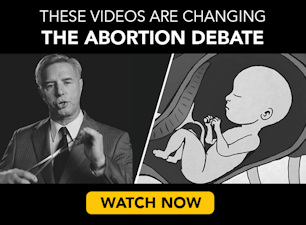There’s been a lot of talk about abortion exceptions lately, mostly in the form of abortion defenders brainstorming to figure out the best ways to turn them against pro-lifers.
Usually it’s as simple as “they oppose any exceptions because they’re extremists who don’t care about women,” but they also have a backup narrative. At Vox, Emily Crockett attempts to argue that instead of concessions pro-life politicians have made to pro-abortion fears, for which pro-choicers should be grateful and reciprocate with concessions of their own, “these exceptions are actually a major human rights problem.”
Give pro-aborts an inch, and they’ll bludgeon you with it for the rest of your days…
[R]ape and incest exceptions don’t work very well in practice. For instance, more than half of eligible low-income women who have insurance through Medicaid never actually get the reimbursements they are entitled to, even for an abortion that should be covered under one of these three dire circumstances.
This is the same weak excuse pro-aborts used to torpedo the federal 20-week abortion ban last year. You can argue some states’ burdens of proof are less reasonable than others, but the bottom line is that you can’t say abortions must be allowed for rape without accepting some means of confirming that a rape actually happened (and no, taking the abortion industry’s word for it doesn’t cut it). Otherwise, you’re saying rape should be an excuse for anyone to abort.
Crockett next argues that lacking a “health exception” is “unconstitutional” because the Supreme Court ruled that any health exception “has to be a broad exception, because a doctor needs to be able to exercise her best medical judgment on whether an individual abortion is medically necessary or advisable,” and pro-life bills’ health exceptions are often too narrowly worded.
What she ignores, however, is the reason the Supreme Court forces us to word those exceptions narrowly. As we discussed previously, SCOTUS also ruled that “physical, emotional, psychological, familial, and the woman’s age” are all factors which can potentially justify abortion because they “may relate to health.”
Oddly enough, our critics never propose a better wait to prevent health exception abuse, instead resting all their hopes in the “trust doctors” refrain. Considering Crockett’s allies never made a peep when our president cited “trust doctors” as his rationale for letting newborns starve to death after botched abortions, I think we’ll pass.
Because of the Catholic Church’s strict anti-abortion rules, some doctors have refused to induce labor for a woman having a miscarriage until she actually develops sepsis — in other words, they have to wait until her life is literally in danger and can’t do anything until then even if they know it’s risky.
Crockett’s source is her February report on allegations of misconduct at Mercy Health Partners hospital in Michigan. But first and most importantly, even if the hospital did harm patients, that’s a separate complaint from her thesis; a health exception that specifically allows abortion for a real medical emergency wouldn’t force the hospital to wait to administer a treatment that isn’t even a direct abortion!
Second, she could switch gears to a different subject and blame religion, but the US Conference of Catholic Bishops’ medical-ethics directives suggest otherwise. The USCCB forbids “every procedure whose sole immediate effect is the termination of pregnancy before viability is an abortion,” but permits treatments “that have as their direct purpose the cure of a proportionately serious pathological condition of a pregnant woman […] even if they will result in the death of the unborn child.”
Third, the devil is in the details. Mercy first made headlines when the ACLU sued them over the case of a woman they denied an abortion to, despite coming in with bleeding, painful contractions, and a suspected bacterial infection. However, what you may not have heard is that she could have gotten an abortion two blocks away from Mercy, and if she had a genuine malpractice case on her hands, why did the ACLU choose to sue not the hospital, but the USCCB and Catholic Health Ministries officials?
In fact, that was one of the reasons the judge threw out the lawsuit—the alleged victim could have sued for malpractice but didn’t, and in the absence of a specific misconduct claim he was simply being asked to rule on Catholic doctrine and church conduct directives that were not legally binding. Crockett writes:
This sort of thing literally kills women in countries like Ireland, whose strict anti-abortion laws lack adequate health exceptions.
This is the obligatory reference to the case of Savita Halappanavar—whose life, contrary to what you may have heard, was not endangered by Ireland’s pro-life laws and would not have been saved by abortion.
Finally, Crockett cites a couple other diseases where continuing a pregnancy continues to endanger the mother’s life…without confronting the fact that the remedy — life-saving treatment that may result in the child’s death but isn’t targeting him or her — is not abortion and wouldn’t be forbidden by pro-life laws.
Yet again, we see that compromising on abortion hasn’t cooled down tensions in the debate; it’s simply invited more hysteria and more doubling down on behalf of abortion at any time for any reason. Until our representatives stop giving ground and instead put abortion advocates on the receiving end of tough questions and the extremism label, we should expect no different.








